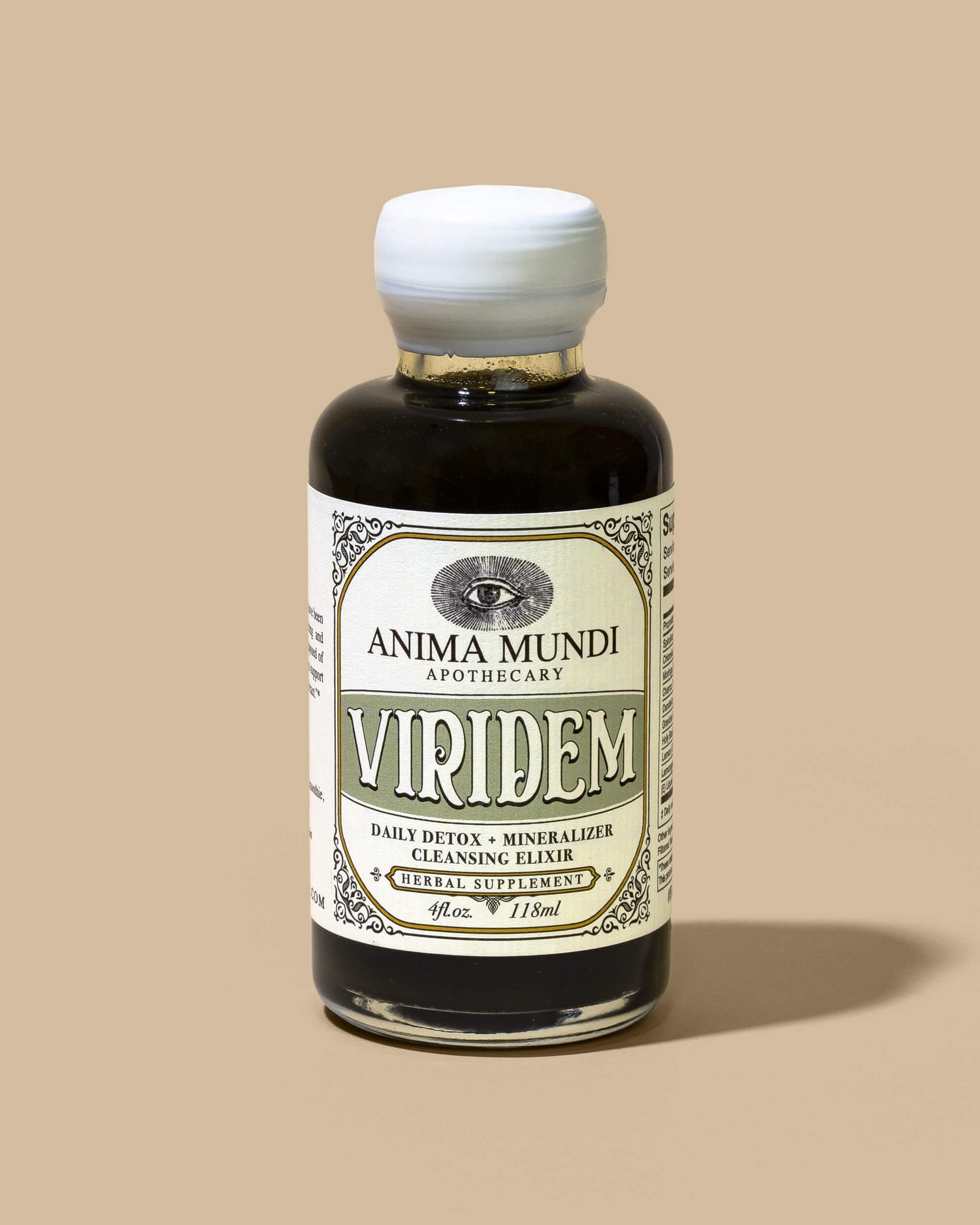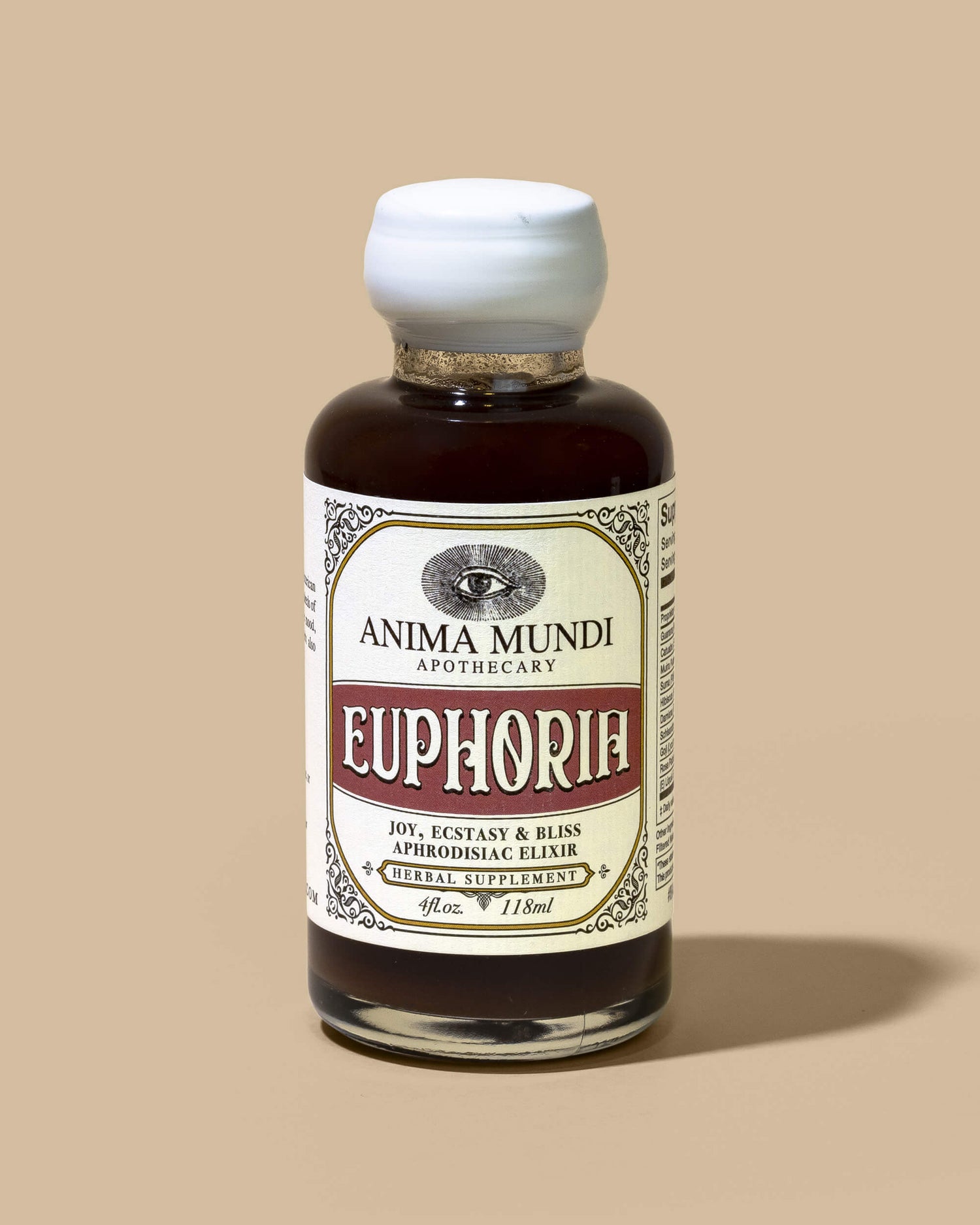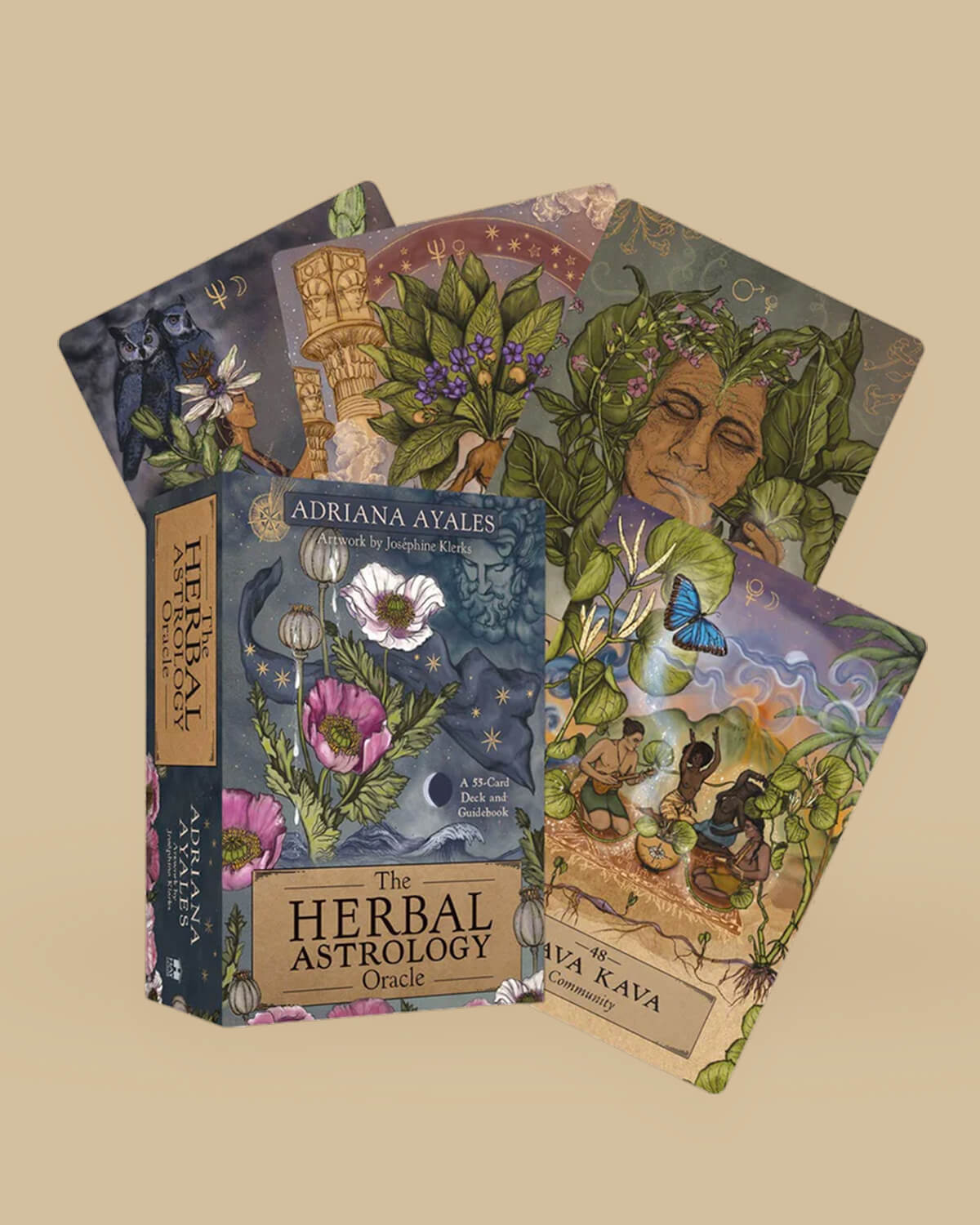The Three Treasures
In Taoism and Traditional Chinese Medicine (TCM), it is said that we are given three treasures when we come into this life. The first is Jing, meaning essence; the second is Qi, meaning vitality; and the third is Shen, meaning spirit. These three treasures are the physical, energetic, and spiritual foundations of this incarnation, which determine the quality and quantity of our lifespan.
In alchemy, these three treasures describe the path toward ultimate illumination, which is accomplished through the inner transformation of essence into energy, which in turn can be transmuted into spirit, which can then return to the primordial Tao. In medicine and martial arts, the emphasis is on protecting and cultivating the three treasures, which gives a person the longevity and health needed to complete the inner alchemy of liberation.

A Brief History of Distilling Essential Oils in China
The distillation and use of essential oils was known in ancient China, both in medicine and alchemy. As in other cultures, distillation of aromatic plants was part of a larger search for elixirs of longevity and immortality, which utilized a variety of plants and mineral substances. Throughout the course of these explorations, alchemists made many discoveries that contributed to the development of modern chemistry and industries, including fermentation methods, distillation of alcohol, metallurgy methods, and others.
One intriguing example of early Chinese aromatherapy is from Chang Shi Nan, who described the preparation of “flower dew” in 1233. Chang wrote: “The people of San Shan say that the oranges of Yung Chia are the best in the whole world. There is one kind called Chu Luan (neroli), the flowers of which have a perfume excelling that of all other citrus flowers. They are placed, with shavings of Chen Xiang (agarwood) in small steamers in a small still so that the flowers and wood form alternate layers. At the opening at the side of the still drops of liquid collect like sweat and are received in a container. The perfume is extraordinarily elegant.”
Over time, the process of distillation became part of Chinese medicine and inner alchemy, both literally and metaphorically. As part of the pharmacopeia, distillation was used to create elixirs and tinctures, to purify minerals and metals, and in many other ways. As part of inner alchemy, the imagery and symbolism of distillation was used to guide the transmutation of Jing into Qi and Qi into Shen in the landscape of the body, similar in many ways to how kundalini and the chakras were used in Tantric yogas. In aromatherapy, we can integrate the outer alchemy of using essential oils into the inner alchemy of supporting our meditation practice, which naturally transforms Jing into Qi and Qi into Shen every time we enter states of tranquility and inner peace, even if we are not following specific Taoist methods.

Aromatherapy and Jing
The first treasure is Jing. Jing means essence, specifically the essence of sexual vitality and reproductive fluids. It is the medium of genetic ancestry and storehouse of our constitutional strength, which means it is an aspect of core immunity. Depletion of Jing is synonymous with weakening of libido, exhaustion of mental and emotional vitality, and depletion of blood and fluids. The concept of Jing is very similar to the concept of Shukra in Ayurveda, meaning the reproductive fluids and sexual vitality, and to some aspects of Ojas, meaning core immunity and power of endurance.
The aging process brings decline of Jing, and declining Jing accelerates aging; we can see this process directly correlated to hormonal changes that end ovarian functions at menopause and decrease sperm production in men. As our sexual fluids and vitality weaken, the ability to transmit the genetic essence of the ancestral lineage carried in Jing comes to an end.
In herbal medicine, tonics that strengthen and rejuvenate Jing include sexual restoratives, aphrodisiacs, adaptogens and fluid nourishing species. The majority of these rejuvenative herbs are sweet and moistening.
Plants have Jing, just as they have their own forms of Qi and Shen. Jing in plants correlates with their nectar, which is the sweet attraction for pollinators, and the pollen itself, which is the sperm of plants, and the ovaries of flowers that receive the pollen to create seeds, which then transmit the genetic ancestry to the next generation.
The aromatic molecules emitted by flowers are the signaling mechanism that alerts olfactory pollinators to the presence of nectar. Because essential oils distilled from flowers are functionally a part of the reproductive system of flowers, and because floral oils in perfumery have strong associations with stimulating and enhancing erotic moods and sexual functions, we can say that floral oils are the ‘Jing of the plant’, which in turn nourish our own Jing.
Here are some easy and pleasurable ways to nourish Jing using the essential oils of flowers:
- A massage with warm oil infused with a few drops of ylang-ylang, especially if shared with a loved one.
- An aromatic bath with a few drops of clary sage oil, while sipping rose petal tea.
- Geranium oil diffused throughout the house, while practicing deep relaxation and slow breathing.
- A drop each of jasmine and rose oil worn as a perfume.
- A drop of lavender oil on the pillow to produce euphoric relaxation before sleep.
- Three drops of neroli oil mixed with a drop of agarwood oil, to create the “extraordinarily elegant” perfume described by Chang Shi Nan.
How do we know when our Jing is being nourished? We feel more pleasure, more sensuality, and more erotic. We feel rested, rejuvenated, and relaxed. We feel positive emotions and mental states, more love, happiness, patience and equanimity. Jing is the opposite of stress, tension, and depression. As Ayurveda says: “The sweet fragrance gives long life, youthfulness, and pleasure; it is a rejuvenator.”
Aromatherapy and Qi
The second treasure is Qi. In Chinese medicine and Taoism, the word Qi has a multitude of meanings, many of which are related to distillation and aromatherapy. The Chinese character for Qi consists of two ideograms that signify “steam rising from rice as it cooks.” In medical terminology, this image describes the vaporous essence that is released from nutrients cooking in the digestive fire.
Qi is associated with clouds; its pictogram includes the image and meaning of vapor rising to form clouds. As an extension of that meaning, Qi is a noun for gasses of all kinds, and any form of matter existing in a gaseous state. The word Qi refers to weather in general, and the transformative processes of atmospheric phenomena. Qi also has solar connotations.
Qi is specifically linked to the breath and breathing, as an extension of the concepts of atmosphere and gasses. Qi also means smell, odor and flavor, and it is also used as a verb, meaning “to smell.”
There are many forms of Qi in the body, including the Qi of each organ, the Qi of fluids, the Qi of metabolism, and many others. One of the most important applications of aromatherapy and essential oils is to strengthen what is called Wei Qi, the defensive Qi of the body surface and lungs.
Wei Qi is described in TCM as an aspect of immunity. It is said to be a defensive energy of the skin and respiratory mucus membrane that provides resistance against changes in the weather, specifically cold and wind, and airborne microbial pathogens. Its strength is related partly to the quality of nutritional essence provided by the digestive system, but more to the strength of the lung Qi.
Whether an airborne pathogen, specifically respiratory viruses, will invade the body and become active will depend on the balance between the virulence of the microbe and the strength of the Wei Qi. Because of their antimicrobial and immune enhancing powers, and because they are so effective when used for atmospheric purification through diffusing, essential oils are one of the primary treatments for strengthening Wei Qi against airborne pathogens.

Biologically, the aromatic molecules produced by plants are used to protect themselves from microbial pathogens, as well as insect and animal predators. When we distill essential oils, we are extracting the molecular form of botanical Wei Qi, which has a direct relationship with our Wei Qi.
Since all essential oils are forms of botanical Wei Qi, virtually any species can be used for benefiting our Wei Qi. These can be used in the diffuser, on a compress for the chest to open breathing, a few drops on a bath, and for steam inhalation. Any oil that has a history of being used for the respiratory system can be considered a treatment to boost Wei Qi. These applications are specifically indicated in the winter, and for people who get frequent colds and flus because of weakened immune systems from various causes.
For this purpose, we can use the oils from the conifers and eucalypti, which have direct antimicrobial actions and respiratory benefits when diffused or used in steam inhalation. There are those such as frankincense and Palo Santo from the group of sacred scents, which not only purify the air of pathogens and strengthen respiratory immunity, but also calm and balance the mind and emotions.
Strong antiviral oils such as ravesara and tea tree are excellent examples of botanical Wei Qi that support our own. The citrus oils can be greatly beneficial for atmospheric purification of microbial pathogens. Many of the medicinal flowers such as lavender are highly antimicrobial and commonly used for colds and respiratory infections. Wood oils such as cedar are highly beneficial for respiratory problems. The traditional spices and herbaceous aromatic herbs such as oregano, thyme, and rosemary are all strong antimicrobials that support Wei Qi.

Aromatherapy and Shen
The third treasure is Shen. There are many meanings of the word Shen. On a macrocosmic level, it can refer to God, Creator, deities and supernatural beings. In TCM, the meanings are related to consciousness, awareness, mental faculties, attention, expressions, demeanor, and so forth. In medical practice, the treatment of Shen is directed toward supporting the wellbeing of the mental and emotional states, which is also the fundamental reason why people engage in spiritual practices and seek enlightened liberation. In Taoist alchemy, Shen is regarded as the final transformation of consciousness before it enters into the formless Tao.
In TCM, the range of Shen disturbances goes from very mild such as temporary circumstantial stress and tension to more serious insomnia, restlessness, irritability, anxiety and depression to severe mental illness. A healthy Shen is related to positive mental and emotional states, and an unhealthy Shen to unhealthy mental and emotional states. Shen could be closely correlated with “presence,” which is also a way of saying that the mind is clear, stable and lucid as opposed to distracted, confused and turbulent.
One of the interesting aspects of Shen is that the pictograms of its character represent vapor infused within matter. This refers to how immaterial consciousness is dwelling in the world of form, but it also refers to how that consciousness is bound to form by respiration, which is continually infusing Qi of the breath into the blood; when breathing stops consciousness separates from the body. Vapor infused within matter is also an interesting definition of aromatherapy, and infusing the vapors of plants into the body is one of the most direct ways of calming, stabilizing and elevating the Shen and allowing its positive spiritual qualities to manifest.
There are various therapeutic groups of oils that can be used for supporting our Shen. These oils are known both historically and in modern research to have significant effects on the mind, emotions, sleep, relaxation, and other parameters that describe the expressions of Shen. These are:
- Oils that calm and uplift the Shen and rejuvenate vitality through improved sleep and rest (relaxant anxiolytics and nervine tonic anti-depressants). These include lavender, clary sage, geranium, rose, and most other floral oils.
- Oils that work directly on releasing repressed memories and emotional traumas stored in the subconscious by the limbic system. These include jatamansi, valerian, and oils that induce dream activity such as clary sage.
- Oils that uplift the mind and heart by evoking spiritual moods. These include agarwood, sandalwood, frankincense, Palo Santo, rose, lotus, and most exotic florals.
- Oils that enhance cognitive functions, specifically concentration, learning and memory, and oils that prevent and reverse neurological degeneration. These include oils that clear the mind such as the conifers and eucalypti, those that focus and relax the mind such as lavender and lemon balm, and those that stimulate the mind such as peppermint and rosemary.

Aromatherapy for nourishing and calming Shen is most powerful and effective when it is used as part of regular meditation practice, which quickly trains the nervous system to recognize and remember deeper states of physiological relaxation.
Protecting, nourishing and cultivating the three treasures of Jing, Qi and Shen is the foundation of longevity, health, well-being, and spiritual attainment. Traditionally this has been done using the outer alchemy of herbal medicine combined with the inner alchemy of meditation. Now that we have access to so many essential oils that were not widely available before, we can easily add them to our practices to further develop and refine these physical, energetic and spiritual treasures. Using floral oils to enhance sensuality rejuvenates Jing; using atmospheric purifying oils that protect respiratory immunity strengthen Qi; and using aromatherapy to deepen meditation, especially the sacred scents, nourishes Shen.

















